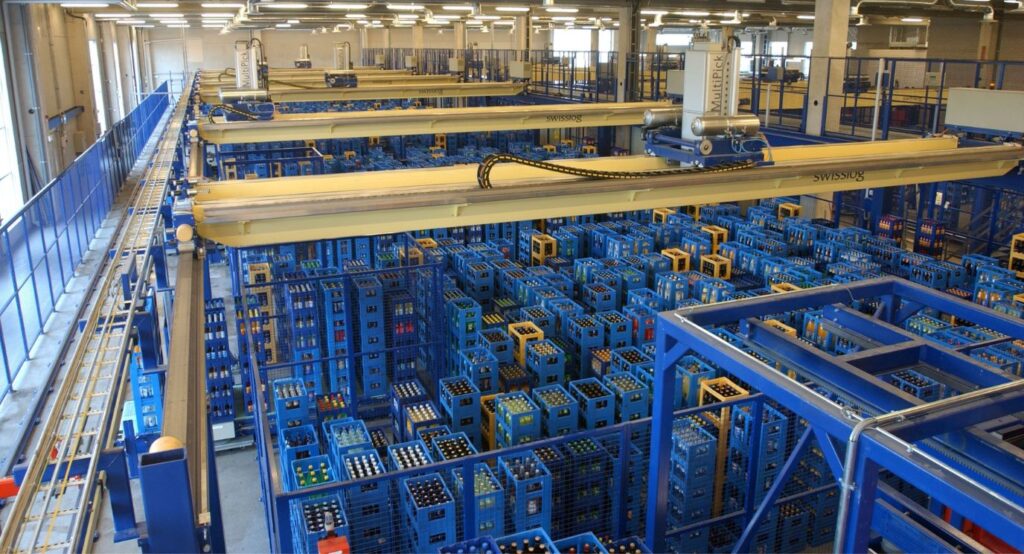Hartwall and its products, from sodas to more adult-oriented drinks, are well known among Finns. Established in 1836, the company is investing in recycling and reusing its packaging materials. It has also gained praise for its actions. How have the changes in producer responsibility decisions on packaging manifested in Hartwall’s day-to-day activities? And what made the company choose Sumi as its partner?

For example, the bottle baskets circulate through Sumi Oy.
Hartwall has produced refreshing beverages and brewery products for Finns for almost two centuries. Over the years, the business operations have expanded to cover new categories, such as coffee and snacks. The company currently employs some 700 people and as many as 11,000 indirectly. Hartwall is part of the Danish Royal Unibrew group, which also employs Packaging Material Manager Asko Sipola.
“Hartwall is a large user and manufacturer of packaging materials, so their recycling is extremely important to us. We aim to ensure that 100% of the packaging materials we use will be recycled or reused by 2025. We are already very close to the finish line,” Sipola says.
Hartwall uses roughly 138 tonnes of packaging materials annually, including labels, corrugated cardboard, and returnable packaging with a deposit. Hartwall is at the top of its field in the recycling of packaging materials, and Lassila&Tikanoja have praised its progressive actions. Sipola applauds Finns for their conscientious recycling of packaging with a deposit.
Expert partner helps navigate changes
Packaging producers in Finland bear producer responsibility, which is governed by the relevant legislation. This means that producers must arrange the waste management of the products they bring to the market and cover the resulting costs. Producer responsibility organizations, such as Sumi, help customers recycle all packaging materials.
Earlier, a producer could have up to five separate producer responsibility transfer agreements, and every material was recycled in cooperation with a different material-specific producer responsibility organization. This model is referred to as a hybrid agreement. Pursuant to the decision of the ELY Centre for Pirkanmaa, a company may only have one producer responsibility organization as of 1 January 2025. Hartwall chose Sumi as its partner.
“By deciding on the producer responsibility organization, we began to compare cooperation partners. Once we gained the new price lists, the choice and process of becoming a customer were easy. Our decision was influenced by Sumi’s principles, goals and contact persons – and, of course, the more competitive option they offer,” Sipola explains.
According to Sipola, the transition from a hybrid customer to Sumi’s contractual partner went without surprises, and the Sumi team has been ready to spar and help. The changing legislation—especially the PPWR—places a competent partner in an important role. Sumi always supports the producers, so the organization quickly responds to domestic recycling needs.
“Since our core operations involve producing drinks effectively and responsibly, we hope that our partner is capable of innovative front-end thinking, interest supervision and providing good and clear information about upcoming opportunities and changes. The partner needs to be updated on developments to offer us the best practices,” Sipola summarizes.
We at Sumi want to provide producers with services that are cost efficient and transparent. If you have questions about the transition from a hybrid customer to a contractual partner, contact us!